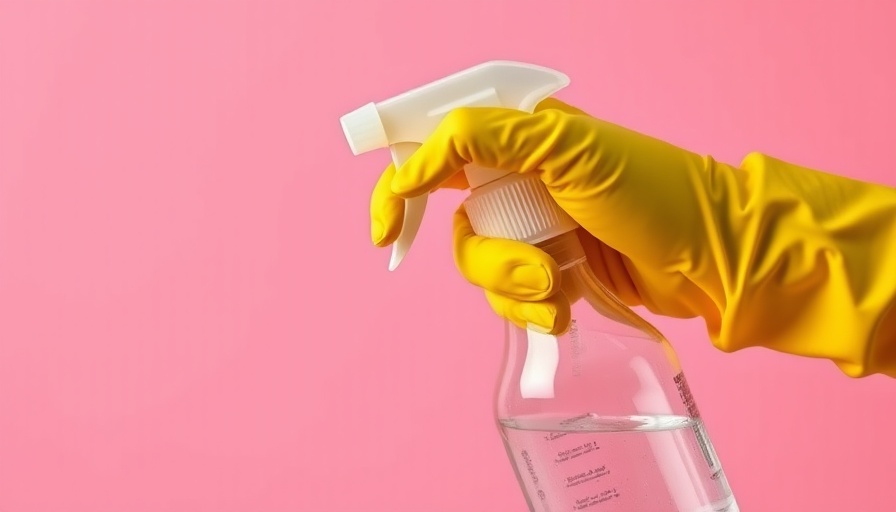
Why All-Purpose Cleaner Isn’t Always the Answer
Many households rely on all-purpose cleaners for everyday cleaning tasks due to their convenience and versatility, but it's essential to recognize that they aren't suitable for all surfaces. In fact, using them indiscriminately can lead to unintended damage, especially on sensitive items like toys and unfinished wood.
Understanding the Risks: Cleaning Toys and Pet Bowls
When it comes to cleaning children's toys or pet bowls, many all-purpose cleaners contain chemical components that might be harmful if ingested. For instance, children frequently put toys in their mouths, so it’s crucial to opt for safer cleaning methods. Washing plastic toys in the dishwasher or launder plush toys on a gentle cycle is often a far better approach. Similarly, pet bowls should be cleaned with dish soap and hot water, making sure that no harsh chemicals come into contact with your furry friends’ food and water.
Unfinished Wood: A Delicate Matter
Using all-purpose cleaner on unfinished wood surfaces can be particularly detrimental. The harsh chemicals may warp or stain the wood, affecting its aesthetics and durability. Homeowners should use dedicated wood cleaners to maintain the integrity of their flooring and furniture.
Taking Care of Glass and Upholstery
Interestingly, while all-purpose cleaners will not typically cause harm to glass, they can leave streaks and smudges. It is advisable to use a dedicated glass cleaner for a pristine finish. As for upholstery, the composition of all-purpose cleaners can discolor fabrics, leading to uneven patches on sofas or chairs. Consider using fabric-specific cleaners to keep your furnishings looking their best.
A Shift Towards Safer Alternatives
With growing awareness about the potential hazards linked to conventional cleaning products, including allergy risks and harmful long-term effects, many households are gravitating towards nontoxic cleaning options. According to recent articles, nontoxic products are essential in promoting a healthier home environment. Brands like Thrive Market and Grove Collaborative showcase alternatives that prioritize user well-being and environmental health.
Homemade Solutions: Simple and Effective
If you're looking to save money and reduce your carbon footprint, consider crafting your own cleaning solutions. Recipes using ingredients like vinegar and castile soap are a fantastic way to achieve a potent yet gentle cleaner without exposing your family to toxic substances. For instance, a simple all-purpose cleaner can be made with:
2 cups distilled water + 2 tablespoons of castile soap,
or 1 cup distilled water + 1 cup of vinegar.
These mixtures can safely clean countertops and other surfaces, offering a safe alternative to traditional cleaners.
The Future of Cleaning: A Sustainable Shift
As conversations about sustainability grow louder, so does the need for eco-friendly cleaning products. Companies are increasingly focused on creating solutions that not only clean effectively but also consider the health of the consumer and the planet. Look for products that disclose all ingredients and avoid vague terms like "fragrance," which may hide harmful chemicals.
Your Cleaning Strategy Matters
Incorporating safer cleaning products into your routine not only ensures your home is spotless but also contributes to the broader effort of fostering a healthier environment. As a result, consider making the switch to nontoxic cleaners or crafting your homemade solutions to further eliminate the risk of chemical exposure.
Taking care of your cleaning strategy today can lead not only to a healthier home but also a more sustainable future. Embrace the shift towards natural ingredients in your cleaning supplies to protect your family’s health and the environment.
#all-purpose cleaner, #toy cleaning, #wood cleaning, #glass cleaning, #nontoxic cleaners.
 Add Row
Add Row  Add
Add 




Write A Comment